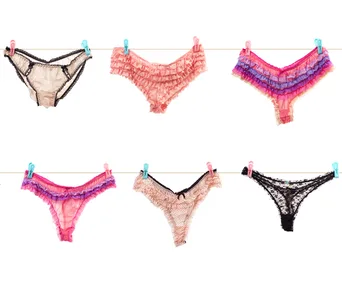A woman in the UK was reported to HR and told to go home after her supervisor discovered she was suffering from menstrual cramps.
We don’t need to tell you that women are tough. There’s a reason it’s called ‘man-flu’ and not ‘woman-flu’, because we soldier on.
Women are so tough in fact, that though more than 20 per cent of us suffer from Dysmenorrhea (cramps severe enough to interfere with daily activities) most of us push through the day without ever saying a word.
Suffering from period pains in the workplace is not only painful and distracting, but it’s also still a taboo topic. One of the myriads of social issues women have to navigate in the work place.
Imagine if, as you were quietly going about your work, you were reported to HR because the idea of you easing your pain to be a productive member of the workforce made one of your male colleagues uncomfortable.
We’re not talking period yoga in the middle of the office here; we’re talking a discrete hot water bottle.

That’s what happened to this UK woman who shared her story with parenting website Mumsnet this week:
Having horrible menstrual cramps, naproxen isn’t touching it, and I remember I have a hot water bottle in my desk drawer – I used it all winter in my freezing office, and a few other people, male and female, have one as well – we have a rule against personal space heaters so it can be nice to have under your desk next to your feet.
Anyway. I fill the hot water bottle, nestle it in my lap, and I’m back to work. My sort-of-supervisor (we’ll call Guy comes over to talk to me about something, notices the hot water bottle, says “there’s no way you’re cold today, are you?” I say “um, no, just for the pain relief”. He looks confused and then literally horrified and then he walks away.
While that embarrassment for both parties could be where our story ends, it gets worse.
Less than ten minutes later, I get a Slack message from one of the HR admins (HR is based in another office a few hours away) to say “Guy says you’re not well and should go home, everything OK?”
I say “I’m fine, this is sort of weird, he just looked a bit shocked that I had a hot water bottle, I’ve got cramps, you know how it is.”
She goes silent and then offline completely, ten more minutes later, the HR Director calls me and asks me if I can find a meeting room, which I do. She then tells me that I shouldn’t disclose my medical problems to anyone who isn’t part of HR as it can make them uncomfortable.
I’m literally shocked, I explain exactly what happened, she says “yes I understand, if you’re so unwell you need a hot water bottle you should be home, Guy is extremely uncomfortable and it’s unprofessional”. I say “this is weird, ok, anything else”? She’s quite breezy and professional – “No, that’s all, if you’re feeling better that’s great but if you need to, please do go home, OK bye!”
It’s a shocking example of a common situation, one that a lot of women would find familiar.
In May of this year, The Victorian Women’s Trust (VWT) called for women to have access to paid period leave, this was following a 3-year study into what would help to remove the stigma, negativity and disconnect that still surround the narrative around menstruation and menopause.
The VWT suggest employers should allow women who suffer from serious menstrual pain (or dysmenorrhoea) to have up to 12 days a year on paid leave or the option of working from home one day a month.
Mary Crooks, VWT CEO explained that policies such as this would only serve to enhance employer-employee relationships.
“It doesn’t have to mean taking leave from work … women could work from home or go to a different part of the office where your body could relax a bit and take your laptop with you,” Crooks explained to the Herald Sun.
“You could take a day’s paid leave if the pain was too great.”
Both Italy and Japan already offer paid menstrual leave policies at work.



